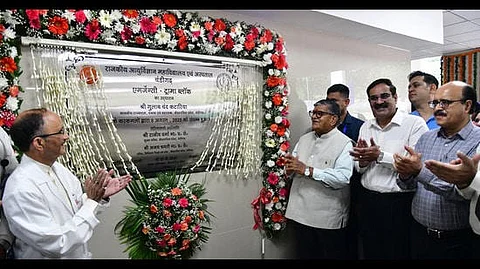

After several missed deadlines, the 283-bed emergency-cum-trauma centre at Government Medical College and Hospital (GMCH), Sector 32, will finally begin operations on Saturday. Built at a cost of ₹52.77 crore, it will be the second such facility in Chandigarh after the Postgraduate Institute of Medical Education and Research (PGIMER), offering advanced critical care to patients in need of immediate attention.
Inaugurating the facility, Punjab governor and UT administrator Gulab Chand Kataria described it as “the need of the hour” given the growing patient load at GMCH’s emergency department. He noted that the government had prioritised the project by allocating the required budget, though construction took longer than expected. “This trauma centre will also help ease the burden on PGIMER,” he said.
Until now, GMCH-32’s emergency block had just 45 beds, but handled 350–400 patients daily. The newly approved emergency and trauma block, sanctioned in 2019, spans two basements and three upper floors. It features a state-of-the-art triage area, fully equipped operation theatres, intensive care units, and dedicated surgical and medical wards. Advanced diagnostic facilities—including X-ray, ultrasound, CT scan, MRI, and comprehensive blood investigations—are also available.
Patients arriving at the centre will first be assessed and stabilised at the triage facility on the ground floor before being directed to the relevant specialty wards. In the event of a mass casualty or disaster, a colour-coded triage system (red, yellow, green) will classify patients by severity, ensuring optimal use of resources and prioritising the critically injured.
The first floor houses modular operation theatres and intensive care units for medicine, paediatrics, orthopaedics, and general surgery, alongside anaesthesia facilities. This is a significant upgrade, as the earlier emergency setup lacked a stabilisation area for severity assessment prior to ward allocation.
Designed to enhance emergency care, the new infrastructure aims to reduce treatment delays, prevent disabilities, and lower mortality rates among critically ill and trauma patients. The governor also announced that within two months, all city dispensaries will be fully equipped to handle minor ailments, reducing the need for patients to visit hospitals for routine check-ups.